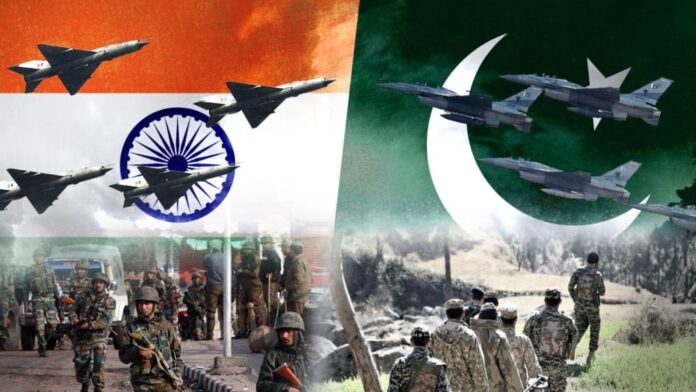A reflection on how post-war triumphalism undermines lasting peace between India and Pakistan, and why restraint is the true mark of strength.
A week-long armed conflict between nuclear-armed neighbors, Pakistan and India, seems to be over, but a new spell of belligerent rhetoric has erupted on both sides. Instead of fostering unity and resilience within their borders, segments of both nations’ mainstream media, social media, film industries, sports icons, and some eminent civil society figures joined the regrettable, counterproductive campaign. They all joined hands in promoting a demeaning public discourse targeting the other side for a perceived weakness, cowardice, and defeat.
Peace in Coexistence
Armed conflict between neighboring nations never yields a sustainable outcome. Bombing your neighbor, causing human atrocities, and expecting peace and security at home is a dangerous illusion. There is no precedent of developed countries in armed conflict with neighbors after World War II. They believe that peace with neighbors is not only desirable, but essential. They all paradoxically avoid war with neighbors but capitalize on conflicts elsewhere. In the case of India and Pakistan, they can learn from their superpower neighbor China, that developed itself to the world’s leading economy without any serious border armed conflict.
War-time chest-thumping is intended to boost the confidence of soldiers. But a post-war wisdom ranted across digital platforms and TV channels simply poisons the well of future reconciliations. While the most respected celebrities become the catalysts of inflammatory discourse and fuel the incitement among the general public, they should feel obliged to advocate for the mitigation of tensions among nations.
It is important to believe that this reinforces the stereotypes that always see the other side as an enemy, and exacerbates the divisions between countries engaged in a conflict. It makes future attempts at dialogue and reconciliation more challenging.
The real challenge lies in fostering a more mature and nuanced understanding of conflict and its aftermath. Instead of celebrating the perceived weakness of the other, perhaps the focus could shift towards acknowledging the human cost on both sides and exploring pathways towards lasting peace. It requires a different kind of courage – the courage to look beyond immediate emotions and work towards a better future, even when it feels difficult.
Path Forward
The urge to revel in a perceived victory or highlight an opponent’s shortcomings may be a primal human instinct. However, in the complex and sensitive relationship between India and Pakistan, this impulse is dangerously short-sighted. The current trend of public figures engaging in campaigns that denigrate the other nation serves only to deepen divisions and sabotage any hope for future reconciliation. True statesmanship and genuine patriotism lie not in amplifying hatred but in fostering an environment where peaceful coexistence and mutual respect can eventually take root. It is time for voices of reason to rise above the noise of derision and guide both nations towards a more constructive and peaceful future.
Mainstream media, prominent journalists, sports personalities, and the thoughtful civil society’s visionary leadership ought to show their commitment in fostering long-term peace initiatives. They need to realize that the price of pettiness is losing the long-term benefits for short-term gains. Think of rising above the blame game to chart the course towards constructive engagement. Shift the narrative towards reconciliation and mutual respect.
It is incumbent upon influential voices on both sides to transcend the impulse for recrimination and guide their respective nations towards a more constructive and ultimately more secure future. Real security doesn’t lie in militarization, but in the spirit to coexist as respectful neighbors.




